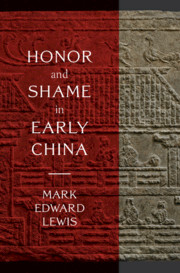Qin imperial unification in 221 bce is often conceived of as the ‘unification of China’. Although from the long-term perspective of Chinese history this view is surely valid, it obscures some of the major trends of the Warring States period (453–221 bce). Back then, the Zhou (‘Chinese’) world was moving in the direction of the internal consolidation of large territorial states amid increasing political and cultural separation from their neighbours. This process unmistakably recalls similar developments in early modern Europe, where, as is well known, these resulted in the formation of nation-states. In China, by contrast, the development trajectory was markedly different. The potential transformation of the competing Warring States into fully fledged separate entities never materialized. The unified empire was eventually accepted as the sole legitimate solution to political turmoil, whereas individual states were denied the right to exist. Why, despite strong parallels, did the Chinese development trajectory ultimately diverge so conspicuously from what happened in modern Europe?
In search of an answer, this article focuses on the extraordinary role played by politically active intellectuals of the Warring States period. By prioritizing the common good of ‘All-under-Heaven’ over that of an individual polity, by denigrating local identities, and by rejecting the legitimacy of regional states, these intellectuals paved the way for the political unification of the Zhou world long before it occurred. This article addresses the idealistic and egoistic reasons for this choice and explores the cosmopolitan undertones of the universalist outlook of the Warring States-period intellectuals.
